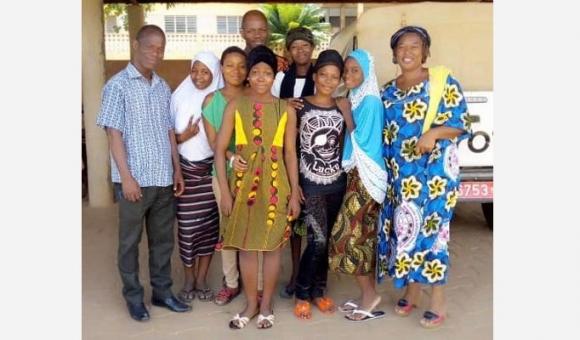
The Benin health sector APEFE programme, financed by the Belgian Development Cooperation, aims to increase the availability of qualified staff, so as to ensure paramedical health services are able to meet requirements.
These are mainly nursing and obstetric services, which benefit the most vulnerable groups. Indeed, nurses and midwives are generally the first medical port of call in Benin, particularly for pregnant women. They thus contribute hugely to reducing maternal and infant mortality.
For the past three years, the Belgian Development Cooperation has offered support to the creation of the Nursing and Obstetric Sciences Training Institute (IFSIO) at the university of Parakou, in the north of the country. The project has been delivered through ENABEL, which facilitated the construction of classrooms, as well as the APEFE, which has offered pedagogical support. Internships are supported by the APEFE, and their implementation is monitored in a variety of ways. These include internship diaries (a self-assessment tool for students), training for internship managers, as well as teachers to supervise interns in the field.
One of the most important moments in the training programme involves gaining hands-on experience, with practical internships in rural environments. In June 2019, the young students set out across the country, outside of major cities, to put into practice the skills they are learning. Apart from their duties as paramedics, one of their aims is to raise awareness among local populations of various issues they face: issues relating to vaccination, vaccination schedules, family planning, violence against women, malaria, alcoholism and addiction, etc.
The first promotion of students received their degrees this year, after three years of studies. Work to train nurses and midwives continues, to make up for a major shortfall in healthcare workers.